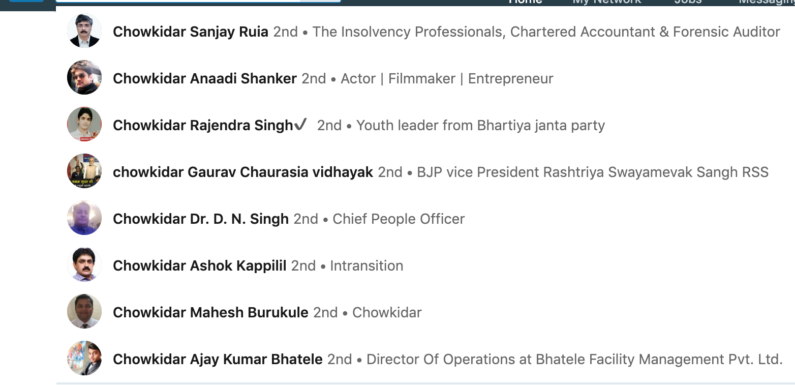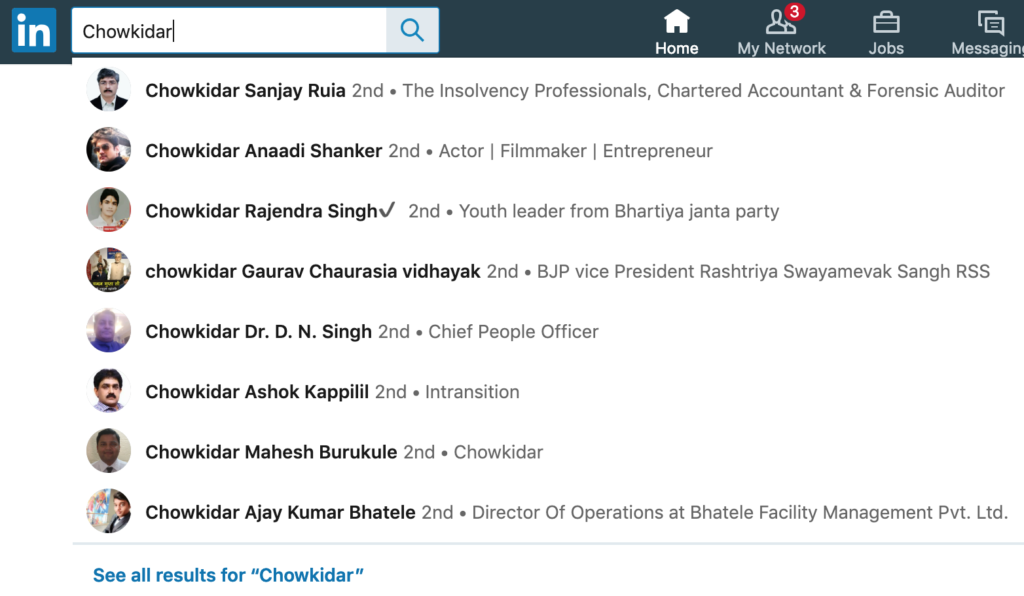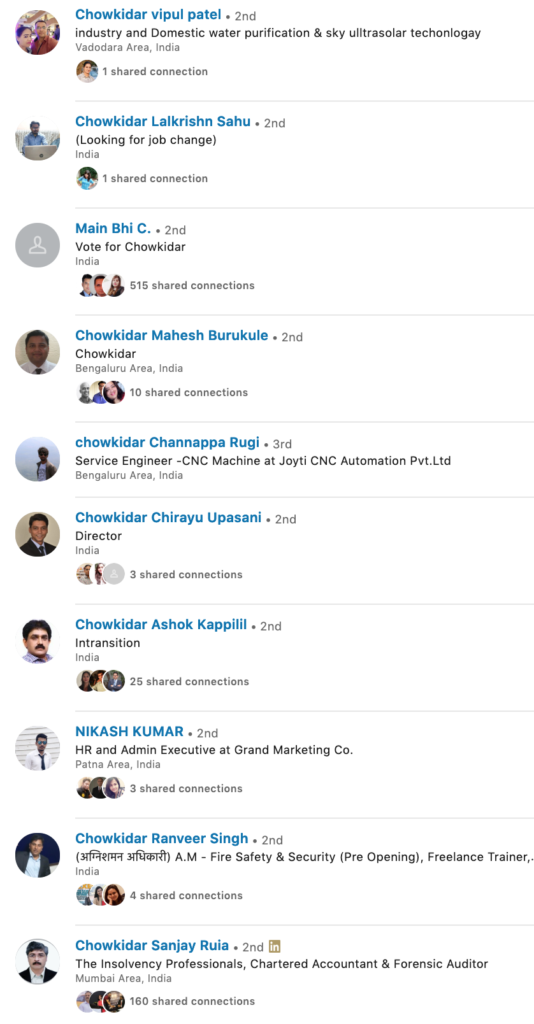
There are a few people on LinkedIn who have added ‘Chowkidar’ before their names. Not as many as you’d find on Twitter and Facebook; about 100+, from what I noticed, and possibly growing.
They are obviously responding to Narendra Modi’s call to become Chowkidars, for which he invented a new meaning, to counter the meaning Congress derived for him after he called himself the nation’s Chowkidar.


There are several ways to look at this trend, on LinkedIn.
One way to do so, without getting political or partisan, and without demeaning their effort: for these people, their political allegiance (at the time of elections, in specific) is so important that it has become their primary identity even superseding their professional identity and the most important identity of their lives—their birth names—on a professional connections platform.
We are all human, with so many qualities. Friend, Father/Mother, Sports fan, lover of rain, admirer of books, driving enthusiast, travel freak, photography enthusiast etc. We love to ‘wear’ some of these identities to be able to connect with each other, on platforms like Twitter, Instagram or even Facebook. That’s part of how social media helps accentuate our self-expression. And on those platforms, there are no filters for what kinds of themes we can use for our self-expression.
LinkedIn is generally assumed to be professional. The primary filter to be on LinkedIn and express your points of view on LinkedIn is ‘professional’.
But, there’s a caveat even here: what is professional for you may not be professional for someone else. For example, Narendra Modi or Rahul Gandhi are career politicians. They don’t know anything else, they haven’t done anything else. Politics is their profession. If they use LinkedIn to talk about the decisions they have made, the change they have effected in India, that’s both politics AND professional.
But, for these people who have added Chowkidar to their names on LinkedIn, politics is not their profession. Some of them, like the BJP Vice President and the Youth Leader, it may be. For the others, not really. For them, this is akin to walking into their office with a BJP logo in their formal shirt. (On Facebook or Twitter, the trend is like wearing a BJP logo t-shirt while walking down the road, or to a movie theater).
It is obviously not wrong, and there are no laws prohibiting people from wearing their political affiliation on their sleeve (or literally on their shirt). If they can wear a pink ribbon (for work) to support the cause for breast cancer, supporting a political party could be considered a cause too.
However, there is a difference – BJP, or any one political party is not a specific cause – it’s a sweeping allegiance to an ideology.
Another example is that of the employee wearing the jersey of a sports team he/she admires – say, in cricket or in football. The question, then, is if the employee gets to wear that jersey every day to work. Usually, that may not be the case given HR policies to that effect, but I’m sure there are exceptions in some industries – like advertising agencies and event management companies.
Consequently, let’s take this example one step further: imagine 100+ people on LinkedIn with ‘Real Madrid’ before their names. Or, ‘Chennai Super Kings’.
If you are a Real Madrid or Chennai Super Kings fan too, you’d find yourself liking the trend.
If you are not a football or cricket fan, or are interested in those sports only passingly, you’d find the trend awkward or annoying.
If you are a hiring manager or a person going to meet one of them, and you stumbled on this while name-searching them, depending on your orientation towards the teams, you’d react and form pre-conceived notions about them (not wrong; just human).
Politics, like sports, IS polarizing. There is no question about it. It pits people in opposite teams and there is always a tendency to look at the other person (in the opposite team) from the lens of the teams/parties they support, and forget that they are humans too, just like everyone else. This is also a reason why there were implicit social rules of not discussing or exposing your political leanings in public. Politics was once a private affair, exercised once every 5 years, during elections.
With social media, that implicit rule went out of the window.
With this new trend on LinkedIn, the implicit rule of not making your political allegiance public at professional circles has also been thrown out of the window.
